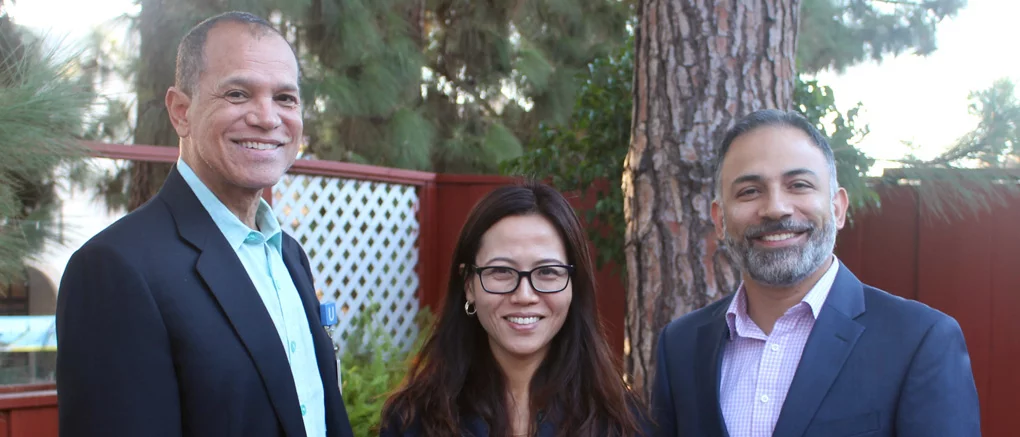Center Cores

About CHIME's Mission
UCLA RCMAR Center for Health Innovation and Maximizing Eldercare (CHIME) is a research and mentoring program continuously funded by the National Institute on Aging since 2002. CHIME aims to contribute to healthy aging by training early career faculty who will advance their careers by conducting aging research. Our Center theme is Developing, Adapting and Evaluating Interventions to Improve the Health of Older Adults, and our research focus is to i) identify and develop solutions to improve health in the growing population of older adults, and ii) improve the well-being of older adults.
Leadership and Administrative Core
The goal of RCMAR CHIME is to improve the health of older adult populations by mentoring and developing talented early career faculty and postdocs whose passion and careers are devoted to reducing problems for the most vulnerable older adults in our country. A well-run and highly responsive Leadership and Administrative Core (LAC) is essential to ensure efficient integration of the other three cores and the pilot projects. In addition, the LAC provides the leadership needed to keep the whole center focused on recruiting and developing the most dedicated early career faculty and postdocs, who conduct innovative multidisciplinary and transdisciplinary aging research that is strongly focused on improving health.
It is very important that scientists and alumni acknowledge RCMAR CHIME support in all products emanating from their pilot study or produced while being funded by RCMAR CHIME.
Analysis Core
The primary mission of the CHIME Analysis Core (AnC) is to provide data collection and analysis support to Scientists and to promote new lines of investigation. The AnC aims to:
- Provide comprehensive methodological and statistical support to CHIME RCMAR Scientists including qualitative data methods (e.g., focus groups and cognitive interviews) and quantitative data methods for developing, implementing, analyzing, and disseminating organizational and individual behavioral interventions,
- Provide exposure to state-of-the-science analytic methods and approaches for the analysis of secondary data to understand factors that affect population aging, particularly for minorities,
- Assist RCMAR Scientists with use or modification of existing measures, or developing new behavioral or social measurement tools for use in mid- life or elderly populations, particularly those of low socio-economic status or other societal disadvantages.
In addition, the AnC provides support to all Scientists in addressing identified measurement and methods issues by matching Core and/or consulting faculty with Scientists based on the methodologic expertise of the faculty and the needs of the pilot studies. The AnC assesses the methodological needs from scientists on a regular basis to provide resources and training opportunities to meet those needs. Visit our resources for useful methodological and analysis links. You can also check out our events for a schedule of our upcoming Methodological Seminars.
Community Liaison and Recruitment Core
For the past 20 years, our CHIME Scientists and faculty have worked in partnership with local community leaders in aging on community-based projects aimed at improving health for older adults. The Community Liaison Recruitment Core (CLRC) works with CHIME Scientists to:
- Facilitate recruitment and retention of seniors for CHIME-supported academic-community partnered research projects
- Generate new knowledge of techniques for recruitment and retention of seniors
- Disseminate the most effective techniques and research advances that are most relevant to our community partners to both the scientific and lay communities.
The CLRC works closely with an established Community Action Board (CAB) that includes 19 members, who support the Center through their involvement in the selection and co-mentorship of RCMAR Scientists in their projects, participation in the research, scientific retreats, and other administrative tasks. The CLRC will also facilitates recruitment of older adults for research projects through the successful approach of training undergraduate students at UCLA and UC Riverside, our new partner institution, and MPH students at Charles R. Drew University (CDU) to recruit and enroll research subjects in the community. CLRC works with Scientists to disseminate research findings through the academic networks of our affiliated centers as well as to our communities.
Research Education Component
The Research Education Component (REC) works to:
- Identify, recruit, and encourage early career faculty and postdocs with demonstrated research potential and interest in aging research to apply as RCMAR scientists
- Select, with input from External Advisors, outstanding scientists to receive 1-year pilot studies (up to $55,000 each inclusive of UCLA CTSI funds).
- Provide intensive individual mentorship, an educational plan and a broad array of resources to enable scientists to complete, present, and publish their research and ultimately obtain independent funding.
- Monitor the progress of the scientists using a program of progress reports, mentorship committee meetings, and brief monthly progress review by the CHIME Executive Committee (EC).
RCMAR CHIME pilots address socioeconomic, health care, cultural, social, and psychological factors and physiological indicators across four levels of analysis including environmental, sociocultural, behavioral, and biological. Pilot studies provide findings that inform the design of future interventions to improve the health of older adults.
In 2018-23, CHIME trained 18 scientists who have over 154 publications and obtained over $17M in funding.